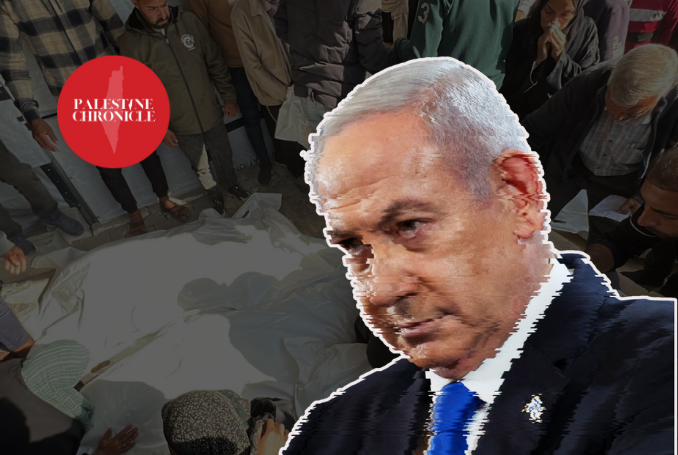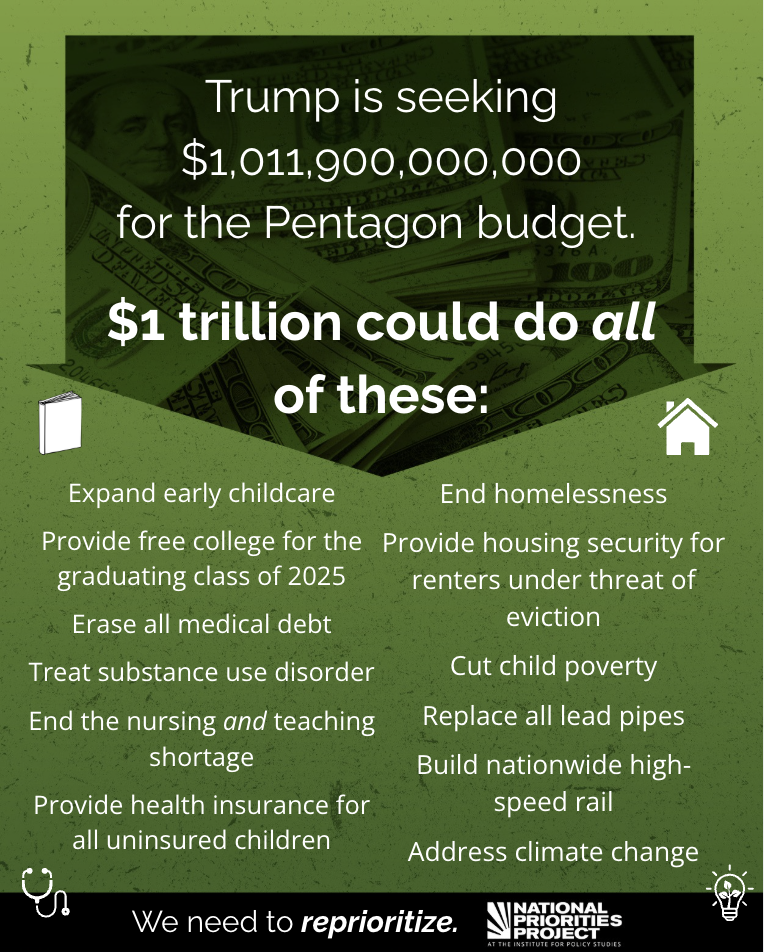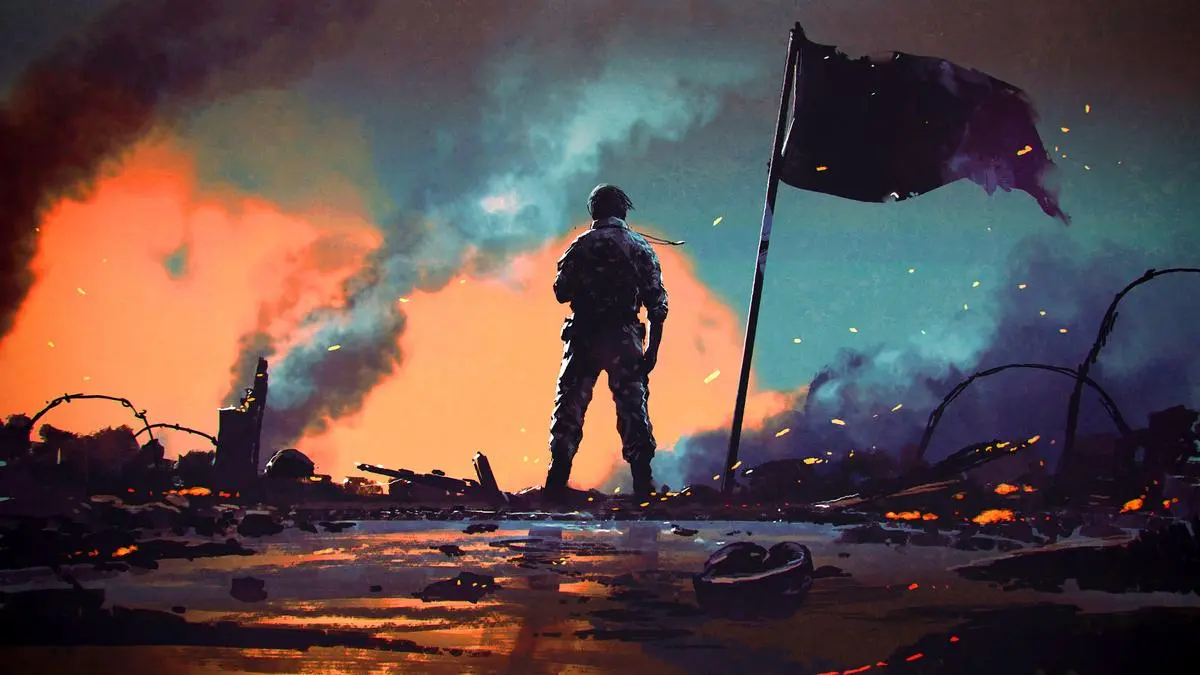Category: Uncategorized
Duel of the century?
by B. R. GOWANI

A South Asian proverb:
When-buffaloes fight, it’s the trees that gets wrecked.
An African saying:
When elephants fight, it’s the grass that gets hurt.
Just at this moment, I received a divine revelation:
“When the world’s most powerful person and the planet’s richest person fight, it’s the world that gets ravaged.”
HOPE NOT!
HOPE …
they’ll “have dinner together,” instead.
To me, war God YHWH further revealed:
“Whatever happens elsewhere is none of my business. However, what happens in my ‘chosen land’ is my supreme concern. Thus one thing remains constant: My chosen one Bibi (not to be confused with this Bibi) is going to continue working to spread more peace.
“No one could stop Bibi’s mission: neither those who think expanding peace is a crime, nor those who claim the land belongs to other people.
“The chosen land is blessed with good neighbors: Pharaoh, Auto-man, puppet, mole, and GCCP. Bibi is busy mopping up the area of people who challenged the chosen ones. Only one bad neighbor is left now which, I am sure, Bibi will take care of.
“My people are also being supported by a communalist who follows a supremacist ideology. The founders of that supremacist ideology were impressed by the person who sent many people to gas chambers, including five to six million of my followers. The communalists were planning the same for the minorities in their own country.”
(YHWH has used code-words rather than naming the neighbors.
Pharaoh cannot be anyone but Egypt‘s Abdel Fattah el-Sisi.
Auto-man sounds like Ottoman, that is, Turkey’s Recep Tayyip Erdogan. Erdogan is a man who turns automatically in the direction where he sees benefits.
Puppet must be Jordan’s King Abdullah II.
Mole must be Morocco’s King Hassan II who, as a member of the Arab League, gave very important information from the conference recording to Israel’s spy agency Mossad. Why would Yahweh invoke Hassan II who died in 1999? Yahweh is probably trying to say that relations have remained the same with the new King, Muhammad VI, son of Hassan II.
GCCP. GCC stands for Gulf Cooperation Council made up of six countries: Bahrain, Kuwait, Oman, Qatar, Saudi Arabia, and the UAE. Despite being Jewish God, YHWH has some knowledge of the rulers who are always worried about their ass-glued gold thrones and are thus looking for protection from the US at the expense of their resources and people. We can thus deduce that GCCP stand for Gulf Cooperation Council of Pimps.
The communalist is India’s Narendra Modi.
The “bad neighbor” is not difficult to identify because only Iran is left there who gave support to Gazans and opposes Israel’s hegemony. Israel, a nuclear power, is looking for ways to destroy Iran’s nuclear program so that it doesn’t have any nuclear rival..)
B. R. Gowani can be reached at brgowani@hotmail.com
The Empire never died
by MARK CURTIS

The British Empire is still with us, in the UK’s island outposts and military bases, in the plunder of other countries’ resources, and in UK officials’ imperial mindset.
There’s long been a debate over whether Britain’s Empire – the largest the world has ever known – was a good or bad thing. There’s another question though – did it really end?
In some ways, obviously it did. Some 62 territories have gained independence from the UK in recent decades, mainly during the period from India’s fight for independence in 1947 until Zimbabwe’s in 1980.
But King Charles is still the head of state of 14 Commonwealth territories, from Australia to Saint Lucia, and the UK controls a further 14 ‘Overseas Territories’, such as Gibraltar and on the island of Cyprus.
The United Nations Special Committee on Decolonisation has a list of 17 territories which are “non-self governing”, or colonies in all but name. In 10 of them, the UK is the current administering power.
Many of the UK’s most important current military bases are in former colonies, such as Kenya and Belize.
UK-based multinational corporations, especially mining and oil companies, are still plundering the wealth of countries which used to be colonies and are now independent. There’s a strong correlation between where they operated then, and where they do now.
And money still being drained from those territories is regularly routed through UK-controlled island tax havens like the British Virgin Islands and Cayman Islands. Those territories are a true legacy of the City of London’s enormous commercial power in the era of formal colonialism.
Just as acute is the culture of intervention that still pervades the corridors of Whitehall – a mentality in officialdom of high-minded superiority that sees it as perfectly normal for Britain to send warships or aircraft to bomb foreign countries – like Yemen last month – supported by jingoistic mass media.
UK global might has certainly declined since it was the world’s superpower, a period which began with Britain’s defeat of the French and Spanish navies in 1805 until the second world war.
But Britain remains one of the world’s major military and soft powers, and one of the globe’s most influential countries, by some rankings.
So what the UK does still matters to millions of people around the world. And much of that influence remains pernicious.
Declassified UK for more
Netanyahu’s endgame: Isolation and the shattered illusion of power
by RAMZY BAROUD

It remains uncertain how long Netanyahu will remain in power, but his political standing has significantly deteriorated. He faces widespread domestic opposition and international condemnation.
There was a time when Benjamin Netanyahu appeared to have all the cards. The Palestinian Authority was largely passive, the occupied West Bank was relatively calm, Israel’s diplomatic reach was expanding, and the United States seemed ready to bend international law to accommodate Israel’s desire for complete control over Palestine.
The Israeli prime minister had also, at least in his own estimation, succeeded in subduing Gaza, the persistently defiant enclave that had for years struggled unsuccessfully to break the suffocating Israeli blockade.
Within Israel, Netanyahu had been celebrated as the nation’s longest-serving prime minister, a figure who promised not only longevity but also unprecedented prosperity. To mark this milestone, Netanyahu employed a visual prop: a map of the Middle East, or, in his own words, “the New Middle East.”
This envisioned new Middle East, according to Netanyahu, was a unified green bloc, representing a future of ‘great blessings’ under Israeli leadership.
Conspicuously absent from this map was Palestine in its entirety—both historic Palestine, now Israel, and the occupied Palestinian territories.
Netanyahu’s latest unveiling occurred at the United Nations General Assembly on September 22, 2023. His supposedly triumphant address was sparsely attended, and among those present, enthusiasm was notably absent. This, however, seemed of little consequence to Netanyahu, his coalition of extremists, or the broader Israeli public.
Historically, Israel has placed its reliance on the support of a select few nations considered, in their own calculus, to be of primary importance: Washington and a handful of European capitals.
Then came the October 7 assault. Initially, Israel leveraged the Palestinian attack to garner Western and international support, both validating its existing policies and justifying its intended response. However, this sympathy rapidly dissipated as it became apparent that Israel’s response entailed a campaign of genocide, the extermination of the Palestinian people in Gaza, and the ethnic cleansing of Gaza’s population and West Bank communities.
As images and footage of the devastating carnage in Gaza surfaced, anti-Israeli sentiment surged. Even Israel’s allies struggled to justify the deliberate killing of tens of thousands of innocent civilians, predominantly women and children.
Nations like Britain imposed partial arms embargoes on Israel, while France attempted a balancing act, calling for a ceasefire while suppressing domestic activists advocating for the same. The pro-Israel Western narrative has become increasingly incoherent, yet remains deeply problematic.
Washington, under President Biden, initially maintained unwavering support, implicitly endorsing Israel’s objective – genocide and ethnic cleansing.
However, as Israel failed to achieve its perceived objectives, Biden’s public stance began to shift. He called for a ceasefire, though without demonstrating any tangible willingness to pressure Israel. Biden’s staunch support for Israel has been cited by many as a contributing factor to the Democratic Party’s losses in the 2024 elections.
Then, Trump arrived. Netanyahu and his supporters, both in Israel and Washington, anticipated that Israel’s actions in Palestine and the wider region—Lebanon, Syria, etc.—would align with a broader strategic plan.
They believed Trump’s administration would be willing to escalate further. This escalation, they envisioned, would include military action against Iran, the displacement of Palestinians from Gaza, the fragmentation of Syria, the weakening of Yemen’s Ansarallah, and more, without significant concessions.
Initially, Trump signaled a willingness to pursue this agenda: deploying heavier bombs, issuing direct threats against Iran, intensifying operations against Ansarallah, and expressing interest in controlling Gaza and displacing its population.
However, Netanyahu’s expectations yielded only unfulfilled promises. This raises the question: was Trump deliberately misleading Netanyahu, or did evolving circumstances necessitate a reassessment of his initial plans?
The latter explanation appears more plausible. Efforts to intimidate Iran proved ineffective, leading to a series of diplomatic engagements between Tehran and Washington, first in Oman, then in Rome.
Ansarallah demonstrated resilience, prompting the US on May 6 to curtail its military campaigns in Yemen, specifically the Operation ‘Rough Rider’. On May 16, a US official announced that the USS Harry S. Truman would withdraw from the region.
Notably, on May 12, Hamas and Washington announced a separate agreement, independent of Israel, for the release of US-Israeli captive Edan Alexander.
The culmination occurred on May 14, when Trump delivered a speech at a US-Saudi investment forum in Riyadh, advocating for regional peace and prosperity, lifting sanctions on Syria, and emphasizing a diplomatic resolution with Iran.
Conspicuously absent from these regional shifts was Benjamin Netanyahu and his strategic ‘vision’.
Palestine Chronicle for more
Just for a chocolate bar …
by B. R. GOWANI

Mallahi of Sitamarhi is a small village in India — 2011 population: 5,248
reently, five boys stole one Snickers<1> chocolate bar
they were coerced to strip naked and were tied together with a rope
they were garlanded with slippers and were paraded in a market
the shop owner forced them to state their & their fathers’ names on camera
causing so much humiliation for just one bar of Snickers
in 2016, 3 boys were tormented for alleged stealing of moterbike
it happened in Chittorgarh, Rajasthan in India (victims in the photo above)
they were stripped naked, tied to a tree, flogged and then paraded
as usual, people watches and teases the victims
many of us humans are sadists
they had to be admitted into hospital
police, instead of pursuing the torturers, filed a report against the boys
the boys, between 13 & 15, suffered beating by adults till they bled
the boys were Dalits, a low caste, & the tormentors were from upper caste
these kind of scenes are not restricted to any one country
in happens in Nigeria, United States, Pakistan, and other countries
however, India witnesses too many such cases every now and then
Note
*Mars Co. is a US based giant multinational involved in many businesses
their annual sale of Snickers chocolate bars is over $380 million
like many other companies, they use child/slave labor, of course, indirectly
Snickers’ advertising slogan is
“Maybe You Just Need a Snickers. You’re Not You When You’re Hungry.”
B. R. Gowani can be reached at brgowani@hotmail.com
One of a kind
by MAHIR ALI

Among political leaders in the 21st century, it would be hard to conjure up a greater contrast than the one bet-ween the grift-addicted Donald Trump and the man described as “the world’s poorest president”.
Jose “Pepe” Mujica, who died last week at the age of around 90, resented the frequent references to his relative poverty. He failed to see why a nation’s president should live more ostentatiously than the majority of his constituents. The trappings of power did not attract Mujica when he became president of Uruguay in 2010 — receiving the presidential sash from the senator who polled the highest votes — his wife, Lucia Topalansky.
“This world is crazy because it is surprised by the normal,” he once proclaimed. “The poor are those who want more.” As head of state, he continued to live in a humble abode on the vegetable and chrysanthemum farm he co-owned with Topalansky, and drove to work in his sky-blue 1987 Volkswagen Beetle, rejecting the presidential palace with its 42 staff members, as well as the black limousines he was offered. He saw these and other unnecessary luxuries as representing the trappings of a monarchy.
His frills-free austerity won him fans worldwide, but not all of them understood exactly why he was so keen to establish a remarkably different leadership model in a relatively tiny Latin American state. Had they paid adequate attention to his speeches and interviews, they might have realised that El Pepe recognised the resilience of capitalism — and, much like Marx, appreciated its historical significance — but also understood that the culture of consumerism and accumulation of wealth it had ushered in needed to be dismantled. He knew this could not be accomplished overnight.
There are lessons to be learned from a Uruguayan guerrilla.
As a young man, Mujica played a prominent part in the Tupamaro insurgency that flourished in the ’60s and ’70s — named, like Tupac Shakur, after Tupac Amaru II, a Peruvian rebel executed in the 18th century by Spanish colonialists. It initially focused on robberies aimed towards the redistribution of wealth, which inevitably earned comparisons with Robin Hood. But when the state resorted to violence, the Tupamaros did not turn the other cheek.
Dawn for more
The trillion dollar trade off: war & weapons vs. basic needs
by HANNA HOMESTEAD

President Trump is requesting a record-high $1.01 trillion “defense” budget for FY 2026 while gutting federal agencies and social services that actually keep the country safe – things like clean air and water protection, Medicaid, child nutrition programs, the Department of Education, green energy, and so much more.
The U.S. already spends more on the military than the next nine countries combined despite the Pentagon being the only federal agency that has never passed a federal audit. The United States government alone operates more than 90% of the world’s foreign military bases, controls more than 42% of the world’s nuclear warheads, and dominates 43% of the global arms trade.
As the world’s largest arms dealer, the U.S. sells weapons to the majority of the world’s authoritarian governments and U.S.-made weapons are routinely implicated in human rights abuses – including facilitating Israel’s genocidal assault on Palestinians in Gaza, ethnic cleansing of the occupied West Bank, and fueling the brutal proxy war in Sudan.
Half of the trillion-dollar Pentagon budget will be handed over to corporations and lobbyists who profit from producing weapons that drive political repression, endless war, and climate collapse – including billionaires like Elon Musk. The budget also includes funding and authorization for domestic use of the military to facilitate mass deportations and detentions at an unprecedented scale.
While Pentagon contractors are set to receive record-high public subsidies, too many Americans are struggling to meet their basic needs. Despite being the richest country in the world, the U.S. has the lowest education and health outcomes and highest rate of child poverty among all economically advanced nations. Wealth inequality has never been higher – and three-quarters of the country are pessimistic about their children’s financial future.
There are no militarized solutions to the challenges facing American families and communities. More war and weapons makes us all less safe, not more. Instead of a record-high budget for war profiteers, what could federal spending do for families and communities?
National Priorities for more
In image we trust
by JINOY JOSE P.

“In societies where modern conditions of production prevail, all of life presents itself as an immense accumulation of spectacles. Everything that was directly lived has moved away into a representation.” — Guy Debord, 1967.
Dear reader,
I remember the first time I realised I was living inside a “spectacle”. It happened during a job interview in 2020, when a media founder leaned forward with alarming intensity and asked, “So, do you have a YouTube channel? Any televised events? What’s your Twitter follower count?” I blinked. The awkward silence stretched as I mentally tallied my embarrassingly modest social media presence. “I’m more of a silent observer than a content creator,” I said. The interviewer’s disappointment was palpable. “We are looking for someone with established digital influence,” he explained. “Our brand ambassador needs to be a brand themselves.”
I hadn’t applied to be a brand ambassador. I’d applied to be a journalist. Yet there I was, being evaluated not for my skills or experience, but for my failure to commodify my existence into digestible content. Failure to package oneself as a “performing” product can render one obsolete in a marketplace that values visibility over competence.
How did we get here?
In the 1950s, people started gathering around bulky television sets with rabbit-ear antennas, mesmerised by the flickering images that promised escape from ordinary life. Today, we carry those escape hatches in our pockets, compulsively checking them 205 times a day on average (according to a 2025 survey). And during these hours we click, comment, share, rate, and curate life.
We have moved from being passive consumers of spectacle through television to active producers and curators of our own spectacles through smartphones and social media. The lines between observer and performer have blurred beyond recognition. And this has consequences.
“The man of today is no longer able to understand his neighbour because his profession is his whole life, and the technical specialisation of this life has forced him to live in a closed universe,” wrote Jacques Ellul in The Technological Society. Quite ironically, Ellul wrote this in 1954 and not in the 2020s. How much more isolated have we become with our digital universes now personalised by algorithms designed to maximise our engagement rather than our understanding?
The algorithms don’t just suggest content; they tell us how to perceive reality. They don’t merely reflect our interests, they create them through feedback loops.
This too has consequences. Mainly on our “self”.
In the age of social media, everyone can pursue micro-celebrity status through scrupulously curated online personas. Our digital selves have become products to be marketed in the attention economy, where the currency is followers, likes, and engagement rates. We’ve moved beyond merely worshipping celebrities; we now apply celebrity logic to our own lives, viewing our experiences as content or “events” to be packaged and consumed rather than moments to be lived.
Frontline for more
Uber CEO plots ‘opening up’ of Iran with Israeli-tied monarchist opposition group
by WYATT REED

A livestreamed Iranian royalist chat revealed a network of foreign-educated elites plotting to plunder Iran’s economy after realizing their dream of regime change.
The CEO of Uber, Dara Khosrowshahi, has drawn criticism following his participation in an online discussion workshopping ways to exploit Iran in the event of regime change. The event wad hosted by NUFDI, the main DC-based advocacy group for the monarchist movement surrounding Reza Pahlavi, whose father was the last reigning Shah of Iran.
The discussion, marketed by one prominent online Pahlavi booster as an effort “to present designs that could be quickly implemented in Iran after the fall of the Islamic Republic” and “the establishment of a sound government,” was held to cobble together a loose plan for the privatization of Iran’s economy following an apparently to-be-determined regime change scenario. It’s unclear whether the vision laid out by the two Iranian expats represents a concrete blueprint for toppling the government, but the content of the chat suggested the Uber CEO seeks lucrative gains in the event of a successful regime change operation.
Shameful that @dkhos & @shervin are speaking at a NUFDI event—an Iranian monarchist group pushing for military strikes on Iran, collective punishment via sanctions, & viciously attacking other opposition voices more than the regime itself.
Maybe they don’t know. But they should. pic.twitter.com/OeEcL8jtBQ
— Sina Toossi (@SinaToossi) May 3, 2025
Asked by fellow uber-wealthy US-based Iranian venture capitalist Shervin Pishevar what he would do in the “first 100 days” of a “Free Iran,” Khosrowshahi explained, “If you look at the potential GDP of the country… As a marketplace, I think, Uber and pretty much every single other major technology company and services company and brand company, would look at Iran as a very, very significant new market to come into. So I think that we would absolutely come into Iran and invest aggressively in the local marketplace as well.”
“There are thousands and thousands of Iranian-American entrepreneurs like myself and you out there, and it’s a force to be reckoned with,” Khosrowshahi continued. “And when Iran opens up, I’m really looking forward to putting that good force to work, so to speak.”
Pishevar, who has been accused of sexual assault or harassment by at least six women who worked with him, repeatedly stumbled while reading a made-for-TV sales pitch during his lengthy introduction of Khosrowshahi: “The Islamic Republic tried to bury us… But we were seeds. Impenetrable seeds. What comes next is the blooming of the Iranian spirit – bold, beautiful, and unstoppable. Let the world see this: that Iran, once silenced by fear, murder, and rape, rose up in hope, and became a beacon to all nations who dream of liberty. We will no longer fund terrorism, we will fund hope. This is our mission, this is Iranian dynamism. It begins now.”
The Gray Zone for more
India–Pakistan war: The winners and the losers
by PEPE ESCOBAR

Chinese military hardware stole the show, French ones lost their stock, India’s clout took hits, and Pakistanis crowed. Yet, ultimately, the brief, hot India–Pakistan war was a victory only for the Global North’s divide-and-rule project for the Global South.
For all the alarming seriousness of two South Asian nuclear powers coming to the razor’s edge of a lethal exchange, the 2025 India–Pakistan war could not but contain elements of a Bollywood extravaganza.
Frantic dancing indeed, which risked getting out of control pretty fast. Forget dodgy, plodding UN mediation or any serious investigation of the suspicious attack out of the blue on tourists in India-held Kashmir.
Right off the bat, on 7 May, India’s Modi government dramatically launched ‘Operation Sindoor’ against Pakistan, a missile offensive billed as “counter-terrorism.” Pakistan immediately launched a counterpunch codenamed ‘Operation Bunyan al-Marsus’ against the “Indian invasion.”
Culture is key. Sindoor is classic Hindu culture, referring to the vermillion mark applied on the forehead of married women. No wonder the Chinese immediately translated it as ‘Operation Vermillion.’
Yet what the whole planet retained from the alarming escalation, irrespective of any attempt at contextualization, not to mention color-coded cultural practices, was the Top Gun element with a Bollywood twist: the Pakistani Air Force (PAF) and the Indian Air Force (IAF), on the night of 7 May, directly involved in the largest, and most high-tech air battle of the young 21st century, lasting a full hour and featuring scores of 4th and 4.5generation fighter jets.
Dramatic entertainment value was provided, quirkily enough, not by Indians, but by a Chinese netizen, notorious internet blogger Hao Gege, and his hilarious global blockbuster parody video “The newly bought plane was shot down.” He was, of course, referring to the IAF’s French Rafales decimated by Chinese J-10C fighters, which have fully mastered electronic warfare and are equipped with cheap, precise, and brutally efficient PL-15 air-to-air missiles.
Add to it Chinese hardware such as the HQ-9 air defense system and ZDK-03 AWACS. A J-10C, which, incidentally, costs only $40 million, roughly six times less than a Rafale.
Inevitably, the whole thing turned into a public relations nightmare, not only for New Delhi, but mostly for the French military-industrial complex, complete with a cornucopia of spin from all sides. Islamabad claimed it destroyed six Indian fighter jets (including as many as three Rafales, with a collective price tag of $865 million, plus one Russian Su-30, one MiG-29, and one Israeli Heron UAV); paralyzed 70 percent of India’s power grid; and smashed India’s made-in-Russia S-400 defense system. India, for its part, fiercely denied all of the above over and over again.
Then, after so much sound and fury, Pakistan on 10 May announced it had won the war. Two days later, India announced the same.
The Cradle for more
